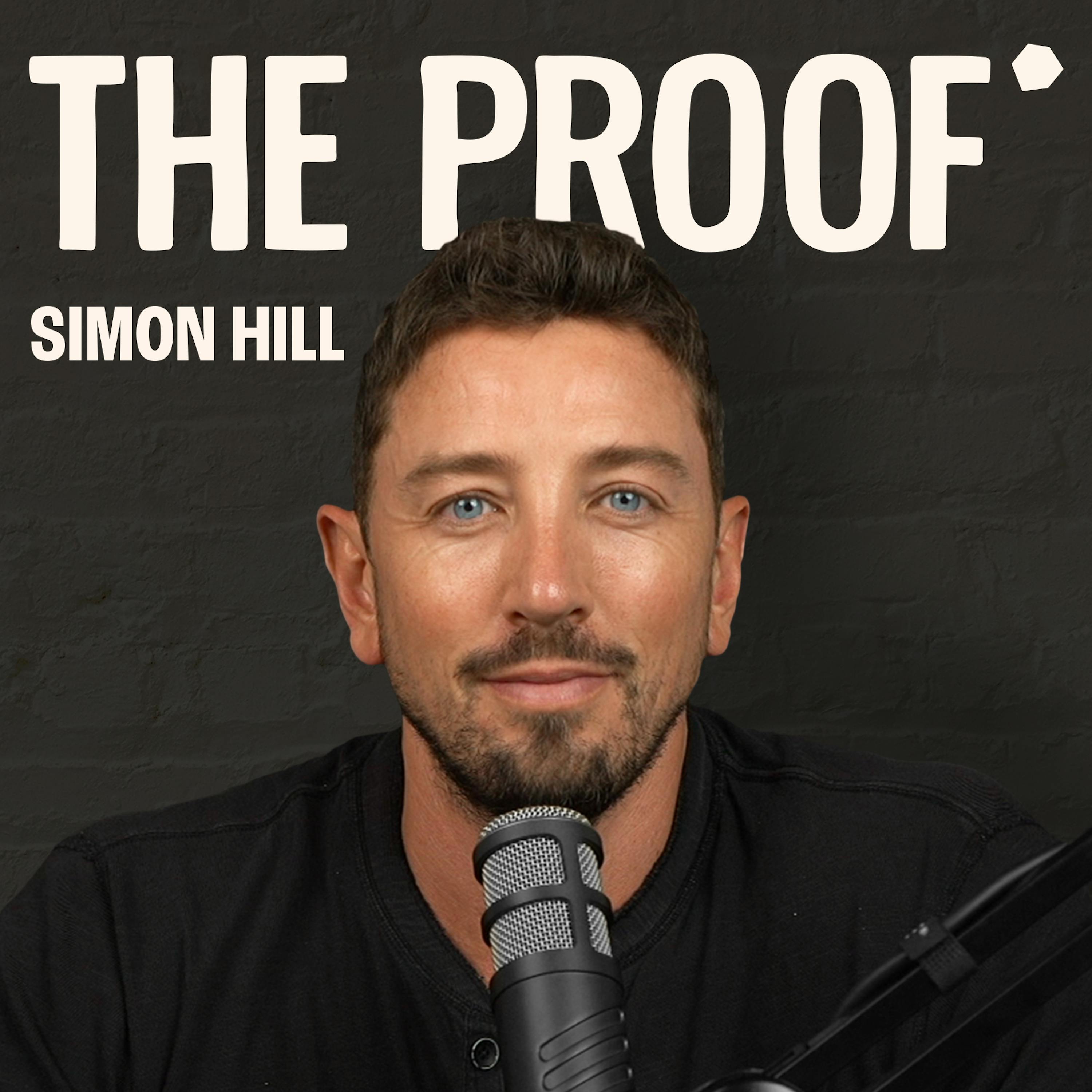.jpg)
The Plant Centered and Thriving Podcast
Welcome! If you're looking for plant-based inspiration, you've come to the right place! This podcast is here so you don’t have to feel alone on your plant-based journey. You'll hear from individuals who have taken the leap to go plant-based, why they did it, the struggles they faced, their words of wisdom for you, and how they're thriving now.
The Plant Centered and Thriving Podcast
Navigating Cholesterol: Dr. Michael Greger’s Plant-Based Health Strategies
"Patients and doctors underestimate the power of plants"
Uncover the mystery of cholesterol and its powerful influence on your body as Dr. Michael Greger, M.D. the leading expert in plant-based nutrition, offers us his insights on this vital topic. Prepare to have your perceptions shifted as we break down the essential roles of cholesterol, dispel common myths, and dig into the complex relationship between 'bad' LDL and 'good' HDL cholesterol. With Dr. Greger's expertise, we navigate the often-confusing waters of dietary impacts and reveal how switching to a plant-based lifestyle can not only manage but also potentially revolutionize your cholesterol levels and overall health.
Resources from this Episode:
NutritionFacts.org
Risk Calculators
Who Should Take Statins?
How Not to Die
How Not to Diet
How Not to Age
How Not to Diet Cookbook
_____________________________________________________________________
WE WANT TO HEAR FROM YOU!
Have a question, suggestion or comment for the podcast? Fill out form here
Plant Centered Nutrition Essential Resources:
Welcome to the Plant-Centered and Thriving Podcast. I'm your host, ashley Kitchens. I'm a plant-based registered dietitian and virtual nutrition mentor. I was raised on an Angus Cattle Farm, grew up with a lot of GI issues and used the power of plant-based eating to promote healing. Here you'll find inspiration, ideas and encouragement for your own plant-based journey. I'm so thrilled you're here today. Let's get started.
Speaker 1:Welcome to the show Plant-Centered Listener. My name is Ashley and I am your host today, and we have a really incredible conversation for you today with a founding member and fellow of the American College of Lifestyle Medicine, dr Michael Greger, who is a physician and internationally recognized speaker on nutrition. His science-based nonprofit, nutritionfactsorg, which is one of my favorite websites and where I go for a lot of nutrition information, offers a free online portal hosting more than 2,000 videos and articles on a myriad of health topics. Dr Greger is a sought-after lecturer and has presented at the Conference of World Affairs and the World Bank, testified before Congress and was invited as an expert witness in Oprah Winfrey's Defense in the Infamous Meat Defamation Trial. A graduate of Cornell University School of Agriculture and Tufts University School of Medicine, dr Greger is also an acclaimed author how Not to Die, how Not to Die cookbook and how Not to Die. It became instant New York Times bestsellers. More than a million copies of how Not to Die have been sold and that is a really fantastic book if you haven't read it yet. All proceeds Dr Greger receives from the sales of his books and speaking are donated directly to charity. Please join me in welcoming Dr Greger and our conversation on cholesterol.
Speaker 1:Welcome to the show, dr Greger. It is great to have you here. Happy to be here. Well, today we're going to talk about cholesterol. We have a lot of great questions that we've gotten from listeners, from the podcast, from Instagram, so we're just going to ask you some questions that we have in regards to cholesterol, because there's a lot of confusion around cholesterol. Happy to talk about anything Good, good, well, cholesterol often gets a bad rap, but I would be curious if you could just kind of start us off on why cholesterol is actually important for our body.
Speaker 2:Well, I mean, it does get a bad rap. I think understandably so, and it should. Cholesterol is a critical component of our bodies. It plays a critical role in our cell membranes and that's why our body makes all the cholesterol we need. We don't need to take in extra cholesterol and in fact, when we do, or when we eat things that interfere with our ability, our liver's ability to remove cholesterol from the body, then we end up with two months cholesterol in our blood, which increases our risk of the number one killer of men and women part disease.
Speaker 1:Yep, yep, could you explain also too? Someone had asked just what the difference is between LDL which is what we often hear as quote bad cholesterol and HDL.
Speaker 2:Yeah, so LDL is indeed bad cholesterol. So LDL lays down cholesterol into our artery walls, where it then gets engulfed by our immune cells, which see it as this, which understandably say wait, a second, there's too much cholesterol in these artery walls, we're going to get rid of it. And so they tried to eat it up and start spewing these inflammatory mediators and it gets all nasty and inflamed and then can create a bulge into the inside of the artery and eventually burst and kill you or cause a stroke or all sorts of horrible things in the body. But LDL is a protein cholesterol complex that circulates throughout the bloodstream. Hdl, similarly, is a protein cholesterol complex, but actually pulls cholesterol from various areas of the body and tries to get rid of excess cholesterol. So you'd think that HDL and that was the common thought is like the good cholesterol, that's actually decreasing the amount of cholesterol in our body.
Speaker 2:But now we know that HDL is not a causal risk factor, meaning people with high HDL tend to live longer and have lower risk of cardiovascular disease, but it's not causing effect.
Speaker 2:So, for example, the same reason why having lots of gym shoes in your house is associated with stentulongevity, or having a lot of ashtrays in your house is extended with shortened longevity. Yeah, that's true, but it's not causing effect. If you increase the number of ashtrays, you're not going to increase your risk of dying unless you also increase smoking, which is the actual causal risk factor. But we know LDL is a causal risk factor and we know this from a variety of ways, one of which is called Mendelian randomization studies, where people born with lifelong low LDL cholesterol levels, regardless of whether they eat, live extraordinarily long, extremely low rates of cardiovascular disease, no matter what they do to their body, because they have these low LDL cholesterol. But people born with high HDL cholesterol actually don't have that protection, and so you're like oh well, then it doesn't. Actually it's not a causal effect thing, so we don't worry about our HDL cholesterol anymore. That is something of the past. We've since learned that most important thing is make sure we get our LDL cholesterol as low as possible.
Speaker 1:Interesting. Okay, and on the line to that subject, someone from Instagram had asked is HDL, do we have to have it as high as it needs to be? You know that's often recommended the higher the better. Is that true?
Speaker 2:No, yeah, it doesn't matter because it does not cause an effect. And so before it's like, oh, we'll drink alcohol, raise your HDL, or exercise, raise your HDL. It doesn't matter about raising HDL because again that's just like changing the number of ass trays in your house but without changing your smoking rates does not actually have a cause and effect. Relationship with cardiovascular disease, apparently.
Speaker 1:Okay, that's great to know. Good, so I've alluded to this in the beginning. It can diet, just diet alone, completely get cholesterol within the normal limits or under the levels that we need.
Speaker 2:Oh no, absolutely. In fact, just doing three things cutting down on saturated fat, which is found in meat, dairy and junk, trans fats, which is found in meat, dairy and junk, and dietary cholesterol, found most concentrated in eggs, egg yolks and meat just doing those things. So going vegan, essentially cutting out all dietary cholesterol and meat and dairy and the saturated fat and trans fat found we're in, can bring ones down to target for primary prevention, meaning you have not yet been diagnosed with heart disease, and so we really want to get your total cholesterol under 150 or LDL cholesterol under 70. And so doing that, just going vegan. The average vegan has a walks around with LDL cholesterol about 68, but it's a bell curve and so, even though the average is 68, about half the people actually have higher.
Speaker 2:Just cutting out the animal products in junk. So then, if you do find yourself on the high end of the curve because of genetics, then you have to add foods to your diet that actively pull cholesterol from the body. This is the rationale behind Dr David Jenkins portfolio study, a very prestigious scientist, the University of Toronto that invented the glycemic index. So it's a vegan diet but adds foods rich in soluble fiber, like slimy foods, like oatmeal, okra, eggplant, adding nuts for the phytosterols, adding soy, adding beans, adding different things that pull cholesterol down from different mechanisms, so this kind of portfolio of different cholesterol lowering mechanisms and so that's been shown to most dramatically drop LDL cholesterol. So within two weeks can drop LDL cholesterol like 30%, which is what you'd expect from kind of first line statin anti-cholesteroid drug.
Speaker 1:Okay, all right. Yeah, that's fantastic. And someone was curious too, and you'd mentioned having your total cholesterol under 150. Do you have desirable ranges for total cholesterol? Is that what it typically is?
Speaker 2:Well, that's what we want, but only because that's what correlates with the 70 LDL. That's all we care about these other problematic factors that can be genetic, like Lp of the lay, things like that which, if you just happen to have certain genetics. But in terms of general population, LDL is what we care about Either all what we care about or what we care about the most. And so the only reason we have this 150 for total cholesterol is because sometimes that's all you get. So sometimes that's all you get in a screening. So if you find out your cholesterol is 150, it probably means your LDL is about 70. But really we'd want to find out what your LDL is. I mean, these days, you know, a standard lipid panel gives you LDL. It's not the actual LDL, it's a calculated LDL, basically factoring in your HDL and your triglycerides. But it's good enough.
Speaker 1:Yep, okay, and you again. You kind of answered this question, but someone was curious does our body really make all the cholesterol we need we really? Can you just confirm?
Speaker 2:we don't need it from diet, absolutely, 100% Okay. According to the National Academy, the science is the most prestigious scientific body in the United States.
Speaker 1:All right Great.
Speaker 2:Now zero need for cholesterol.
Speaker 1:Zero need and which is primarily found in animal products. Almost entirely.
Speaker 2:Yeah, you can pretty much say entirely.
Speaker 1:Yeah, yeah, okay, entirely, we'll go with that.
Speaker 2:Does cholesterol go up as we age, only if your diet takes a tumble. Okay, so if you start eating worse foods, so if, like, your dentition goes, if you start, you know you can't chew as well as just starting more baloney or something. So this kind of soft process meat cholesterol is so sensitive to diet. You know, as I said, two weeks. So you know, typically when we put someone on a statin drug, come back in six months, right, because it takes a while for the statin drug to work, but diet works almost immediately. So in fact you can get kind of the maximum benefit within two weeks, which is great because then you could keep tweaking your diet and just keep getting retested.
Speaker 2:So it's like all right, for this two weeks I'm going to try, you know, this kind of diet and then see if I get down to target. If I don't, oh damn it, all right, fine, I'll cut out the vegan donuts, okay, and then to try that for two weeks, okay, and so then you can keep tweaking. You can even get little cholesterol monitors. You can buy like at home testing kits where you do little, you poke your finger, get a drop of blood and it gives you a lot of cholesterol, and then you can just like keep a chart and be like, oh darn it, all right, so you have to eat healthy. Or again, maybe that genetics you know if you're on the other side of the bell curve going partly vegan could totally get you down to target without cutting out all animal products.
Speaker 1:Yeah, yeah, and that's true. We see a lot of that in these plant-based documentaries where the interventions are only, you know, seven to 14 days and people are seeing drastic effects by going from the standard American diet to a plant-based one.
Speaker 2:Same thing with blood sugar, same thing with blood pressures, and with those it's even more critical to be very careful, because patients and doctors like underestimate the power of the power of plants to rapidly treat the underlying cause, and so you could rapidly become over-medicated. If you're on blood pressure lowering medications, all of a sudden you go on a healthy diet. Well, all of a sudden so you're treating the cause your arteries get healthy almost immediately, or healthier almost immediately, and so all of a sudden your blood pressure falls. But you're on these drugs that artificially lower your blood pressure, and so then you could drop your blood pressure too low, get dizzy, fall over, hurt yourself, crack your skull open, and it could be serious.
Speaker 2:Same thing with blood sugar lowering drugs.
Speaker 2:All of a sudden you're treating the underlying cause of type 2 diabetes. The cause of the pre-diabetes was insulin resistance. All of a sudden your tissues start using insulin more efficiently, and so oh my God you champion. So all of a sudden you have to dramatically drop your the amount of insulin you're taking with these oral hypoglycemic or blood sugar lowering drugs, and you can end up in the ER sweaty because your blood sugars are through the floor and we doctors get calls in the middle of the night for our patients, and why? Because the doctors are like, well, I mean, yeah, I'll come back in a week and we'll see how your blood sugars are doing. They don't understand that, literally within days, a healthy diet can so dramatically improve things and so, yeah. So that's why they say do dietary changes with undersupervision of your medical professional? This is not just like legalistic mumbo jumbo, this is like seriously, because you're going to be over-medicated so rapidly once you treat your body the way it should be treated and once your own body starts healing itself.
Speaker 1:Yeah, wow, I think that's amazing and yes, it just is another testament to the power of plants. So amen to that Power of plants. Now, is cholesterol needed? This was an interesting question. Is cholesterol needed for brain health?
Speaker 2:Absolutely, but again, your body makes all the cholesterol it needs for brain health and in fact, having a high cholesterol, a cholesterol of 225 or more, increases your odds nearly 25-fold for ending up with amyloid plaques in your brain 10 to 15 years later. High blood cholesterol is unanimously considered a risk factor for Alzheimer's disease. It is not a matter of scientific debate. So if you don't want to die from dementia, you can die from Alzheimer's disease. One of the most important things we can do is lower cardiovascular risk factors such as blood pressure and blood cholesterol.
Speaker 1:Yeah, yep, I know you talk about this a little bit more on your website, nutritionfactsorg, and in your book how Not to Die, and I'm sure your other books too, but I know that one touches on it quite a bit. So we talked about hereditary cholesterol a little bit. If someone is struggling with this, on what can be done, can diet make a difference?
Speaker 2:Well, so it depends. So when most people say high cholesterol ends in my family, bad diets run in your family, that's most common. There is, however, a rare condition called familial hypercholesterolemia, where people drop dead in their 20s with heart attacks with quadruple digit cholesterol, and so if your cholesterol is like 700 or something, then you should improve your diet. But it's very hard to imagine bringing cholesterol that high down with diet alone.
Speaker 1:Yep, okay, that makes sense.
Speaker 2:In fact, you probably have to be a multiple cholesterol lowering medication.
Speaker 1:Okay, and speaking of cholesterol medications, is there a point someone had asked when they get their cholesterol results back, is there an indication where medication is absolutely needed and they don't have the genetic cholesterol?
Speaker 2:Oh yeah, yeah. So it's based on your 10 year cardiovascular risk. So there's all these cool risk calculators. So there's the Reynolds risk score and the ACC score, so there's three of them online and you can just fill in your own data and see what your risk of having basically a heart attack over the next 10 years is. And so I have a video about this talk that gives all you know, provide all the links to all the tests and some of them I forget which ones you can actually do kind of your lifetime risk first, not just 10 year, and really give you a sense of kind of where you are.
Speaker 2:And based on that number, cholesterol lowering medications, you know, if you're high enough, are absolutely indicated. If they're low enough, they're absolutely not indicated. And then there's this kind of fuzzy middle range, in which case there's usually kind of subsequent testing you can do, like the coronary artery calcium score. That can be like should we do drugs or not? And it depends on the. You know the pros and cons, but regardless, if you're low, if you're middle, lifestyle is indicated.
Speaker 2:Lifestyle changes, such as improving your diet, are indicated. It's just that. Do we do lifestyle plus a medication? Well, I mean, if you're doing everything right. If you're eating that, send it around whole plant foods and you're not even like junky tropical oils like palm kernel, palm oil, coconut oil these rare sources of saturated plant fats your thyroid function is normal. All these are the secondary causes of hypercluster alemia. You don't have abdominal obesity which can increase your cholesterol regardless of what you put in your mouth, because you have animal fat spilling over in your bloodstream. What animal you? You are the animal. You have human fat. It's like you are eating. You are a cannibal Eating really fatty people because you have human fat, human, animal fat flowing through your system, because you have this deep visceral fat, and so you know weight loss may be indicated, etc.
Speaker 2:But if you're doing everything right and you still have high enough risk, then absolutely the recommendation is to go on a cholesterol lowering drug. What are the downsides Like? Why don't we just put in the water supply? The problem is these cholesterol lowering drugs increase our risk of type 2 diabetes. Type 2 diabetes, I think, is killing number 6 these days, whereas heart disease is killing number 1. So for almost everyone, the benefits outweigh the risks because, yeah, you may get diabetes, but you're not going to have heart attack. You'll reduce your risk of dying from heart attack. But hey, why not get best of both worlds Lower risk of heart attack and lower risk of type 2 diabetes by trying diet and lifestyle alone as far as you can push it?
Speaker 1:Yeah, yeah, I love that because the side effects of diet and lifestyle are a little bit different than the side effects of medications.
Speaker 2:I know I like you get these benefits right. I mean, instead of baggage, you get benefits that come along reducing your risk of all these other diseases, reduce your cancer and all these other things, feel better, sleep better and better digestion, less painful periods, and kind of on down the list of all the benefits of treating your body better. You only have one body right, literally Like can you imagine Like it's not, like you have a car and you're like you can just beat it up because you just traded your rich trade didn't get into a better car, right, but oh my God, if you had one car for the entire rest of your life, oh my God, it would get oil changes, it would get like you'd have to make sure because, oh my God, can you imagine living half your life without a car in a place where you need a car? I mean, you'd be like stuck right and so, oh my God, you would just pamper this car. Well, that's your body. Oh my God, you need this body around.
Speaker 1:That's a great analogy I'm going to use. That's fantastic Because you're right. It really puts it into perspective like how important it is to take care of ourselves now for the long haul. Really, oh my.
Speaker 2:God, yeah, yeah, yeah.
Speaker 1:Yeah, so cholesterol. We touched on this just a little bit, but can cholesterol be too?
Speaker 2:low? Theoretically, yes, but now that we have these really powerful PCSK9 inhibitor drugs that are injected, we can get cholesterol down into single digits and we still don't see any downsides. We would assume God at that low. I mean cholesterol is made to build certain hormones in the body, like steroid hormones, sex hormones. So we're just like God. We got that low. Presumably we wouldn't be able to manufacture. No, didn't see any of those problems, even at extraordinary low cholesterol levels in the teens, and it just shows how evolutionarily built we are for having extraordinary low cholesterol levels. It's possible we evolved to have an LDL cholesterol of about 25. Okay, so in these days the average LDL is like 125. So no wonder heart disease number one cause of death in high income countries and dementia is killer number two.
Speaker 1:Yeah, wow, wow, that's pretty fascinating. Well, so, for someone who has high light, light for protein A, which you touched on just a bit, what do you recommend? And is that a test that, because you know that obviously doesn't come in your kind of typical lipid panel. Is that something that people can request from their doctor as well.
Speaker 2:Yeah, you could, yeah, you could. And the reason why it's not kind of a typical standard test is because historically we didn't think there's anything we do about it. So it's like you know, I mean, what's the point of getting a test? It was not going to actually change your treatment. You could still make an argument for testing even if that were the case, because it could be a motivator.
Speaker 2:What this molecule is is basically an LDL cholesterol attached to another protein. It kind of acts as LDL cholesterol in the body, increasing risk of heart disease. And if it's really high, well then, even if there's nothing we can do about it, oh my god. That just means every other risk factor in your life has to be perfect, no wiggle room whatsoever. So you would just go crazy to have perfect blood pressure you know 110 over 70, crazy to get you know your LDL just absolutely as low as possible, because you have this thing you can't do anything about.
Speaker 2:Now, thankfully, that's actually not true. We now know that you can actually tweak it. So a plant-based diet can lower it and black human powder, I think, can lower it, but we're talking about lowering it like 10%. So I mean, if you have really high levels, then lowering it 10%, you've still got to perfectly pretty high levels. And so again, you know, anytime you see like a vegan with a heart attack, you're like alright, test the APO. You know it takes a lot to the LP, lp, little A, you know, and some of these other kind of nonstandard risk factors be like. Oh, they just happen to have this crazy genetic predisposition. And you know, I wish we kind of knew that in the past because we could just help as much as possible.
Speaker 1:Yeah, yeah. Are there any other things that you recommend someone get tested in addition to just a stereotypical lipid panel? That might be beneficial for them to know in relationship to cholesterol?
Speaker 2:Well, I mean. So according to the USPSTF the United States Preventive Service Task Force the kind of most authoritative body in terms of preventive medicine really just need to get your cholesterol tested. But you should get a retest and make sure your cholesterol is not creeping up. We really want to have ideal cholesterol. Again, number one killer men and women is like. The most important thing we need to worry about in life, in medical life, is really what's happening with our LDL cholesterol. So we wanna make sure it's low, we wanna make sure it stays low. But beyond that, if you're asymptomatic, there's really not much. You know we want colon cancer screening at 45 right now, circle cancer screening, those singles vaccine at age 50, pneumonia vaccine at age 65, ideally we'll be getting annual flu shots. So there are reasons to have a doctor and if you're taking good care of yourself, you're asymptomatic. You know, as long as your kind of cholesterol is low, there's really not much need to go to the doctor.
Speaker 1:Okay, all right, that's good to know. Okay, dr Greger, you know we cannot talk about cholesterol without talking about eggs, because it's a very hot topic for some people. Does eating eggs or does eating something that's rich in cholesterol affect our cholesterol?
Speaker 2:Absolutely. I mean and this is uncontroversial Go to the National Academy of Sciences Again, the most prestigious medical body in the United States very explicit that basically, lower cholesterol the better. We should decrease our dietary cholesterol intake as much as possible. That's like a direct quote. So that means we should decrease our intake of meat, dairy and eggs as much as possible. In other words, everyone should be walking around vegan, chris, I can't say that.
Speaker 2:So if you look at the dietary guidelines of the United States right 2025, 2020 to 2025, the latest dietary guidelines it quotes National Academy of Sciences saying dietary cholesterol intake should be as low as possible, and so it means egg intake should be as low as possible. That is the most single concentrated source of dietary cholesterol. No wonder in the NIHARP study, the largest forward-looking in-depth study on diet and health in human history, found that swapping even 3% of egg protein for plant protein associated with over 20% decreased risk of all-caused mortality. So I think it was 21% men, 24% women. That was the worst. Animal protein actually was egg, and presumably is because the protein is carried along with that dietary cholesterol.
Speaker 1:Yeah, but they can't tell us to eat less eggs because people would get very upset. Certain people would get very upset.
Speaker 2:Well, the egg board would get very upset.
Speaker 1:Exactly, yes, yeah, do you think that's why there's a lot of confusion? Because there's a lot of people saying, oh, it doesn't affect your cholesterol, or it does affect your cholesterol.
Speaker 2:Yeah, so the egg board has what's called a check-off program, meaning every carton of eggs sold I forget how many pennies goes to this pot, this advertising budget, which is run by the US Department of Agriculture, that is distributed for pro-egg advertising. So they spend tens of millions of dollars every year to convince people that eggs are good for you and to muddy the waters when it comes to dietary cholesterol, to run their own studies designed specifically to hide the harms of eggs. And so they just have this massive budget to just. And so that's where all the incredible edible egg campaign came from.
Speaker 2:The same thing with the milk mustache the dairy people have it, the beef people have it. Beef, it's what for dinner? That's all. That is this USDA run program to boost beef consumption, to boost dairy consumption, to boost egg consumption. So it's just. And so then they can pay influencers online to like plug eggs. All this, you know, all this CD stuff and just trying to confuse people, like the tobacco industry did back, you know, half a century ago. But the science, I mean, they can't argue with the science. Science is clear, so they just have to manipulate.
Speaker 1:Yes, you do.
Speaker 2:The literature, yeah.
Speaker 1:Yep, yep, there's a lot of money. Well, I do wanna say congrats on your new book, which came out a few months ago how Not to Age, which is really exciting. Yep, can you give just like a quick, brief overview of what that book is about?
Speaker 2:Oh yeah, it's. My aim with how Not to Age was really to create the most comprehensive anti-aging book ever published, covering every possible strategy for slowing down the aging process for the longest, healthiest life, based on the best available scientific evidence. And the good news is we have tremendous power over our health destiny and longevity, and that the vast majority of premature death and disabilities preventable with a healthy enough plant-based diet. Yay.
Speaker 1:Now, if people wanna learn more about your books, or even where to learn more about cholesterol evidenced based information on cholesterol where's the best place for them to go?
Speaker 2:Did you say the E word? I sure did, I don't know if the E word is.
Speaker 1:Not influencer based.
Speaker 2:There's even the S word. People talking about science, outrageous radicals. I didn't realize I was being interviewed by some radical pod guys there.
Speaker 2:Yeah, so evidence if you actually wanna know and look. If there's anything in life we should demand evidence for it should be well. It's most important for the health and wellbeing of ourselves and our family. According to the Wilbur and Disease study, the largest systematic analysis of risk factors in history, the number one cause of death in these United States is the American diet, bumping tobacco smoking to the number two. Cigarettes only kill about a half a million Americans every year or so. Diet kills many more, which is good news. This means we have the power. Check out nutritionfactsorg, all thousands of videos, type in eggs, type in dietary cholesterol, type in anything you want, and I just review the peer-reviewed scientific literature and just pass along the information to everybody. There are no ads, no corporate sponsorships, strictly non-commercial, not selling anything. Just put it up as a public service, as a labor of love.
Speaker 1:Yeah, it is the best website out there in my opinion. So I thank you so much for putting time and energy into it, and thank you so much for coming onto the show. Your time is invaluable and I really appreciate it.
Speaker 2:Oh, you're so sweet. Look, all the information in the world is useless, unless there's people like you in the trenches actually getting it out there, so I really appreciate it. Thank you so much and looking forward to coming back.
Speaker 1:All right, sounds good. Thanks, Dr Greger. Thank you so much for listening to the Plant-Centered and Thriving podcast today. If you found this episode inspiring, please share it with a friend or post it on social media and tag me so I can personally say thank you. Until next time, keep thriving.
Podcasts we love
Check out these other fine podcasts recommended by us, not an algorithm.

The Rich Roll Podcast
Rich Roll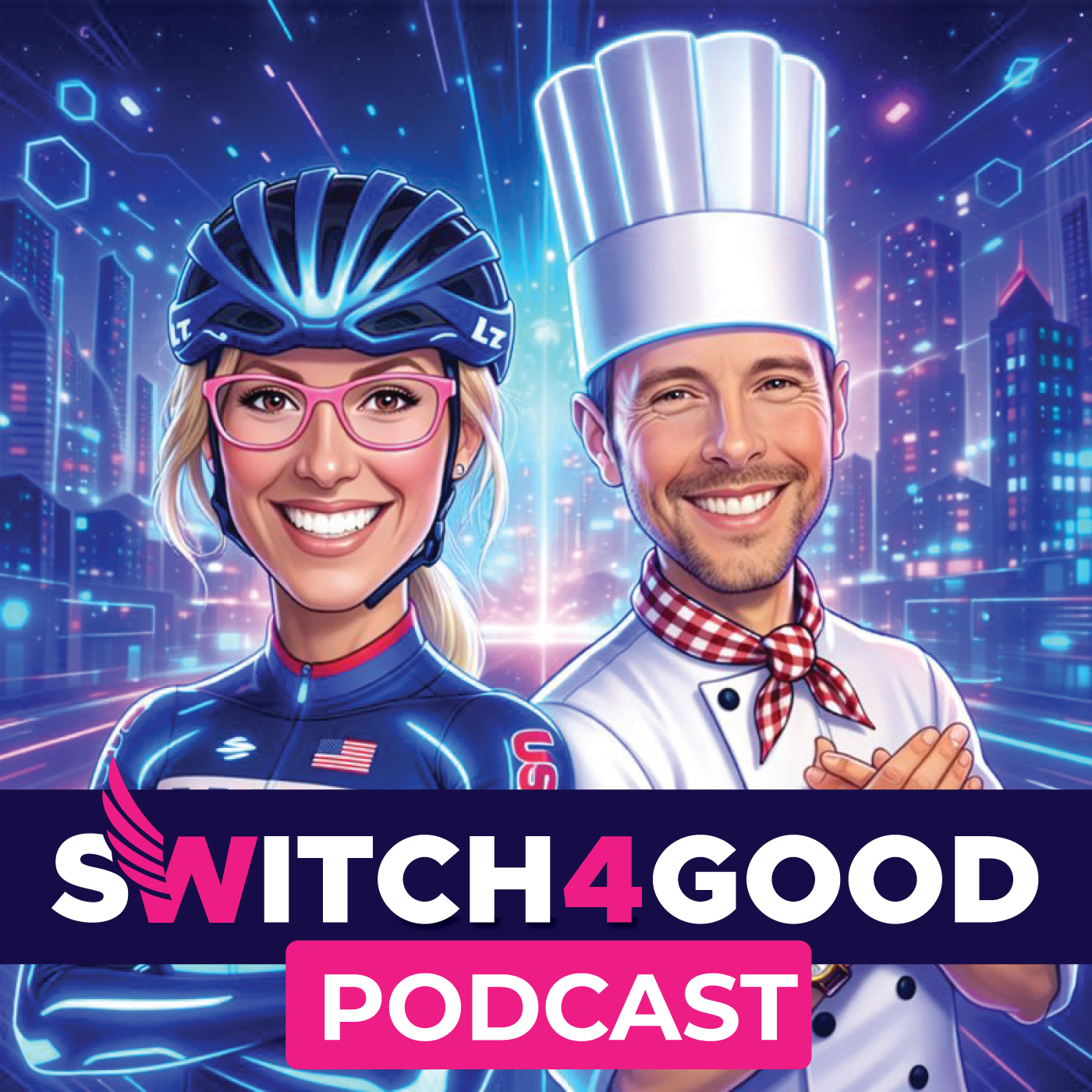
Switch4Good
Dotsie Bausch and Raphael Wrobel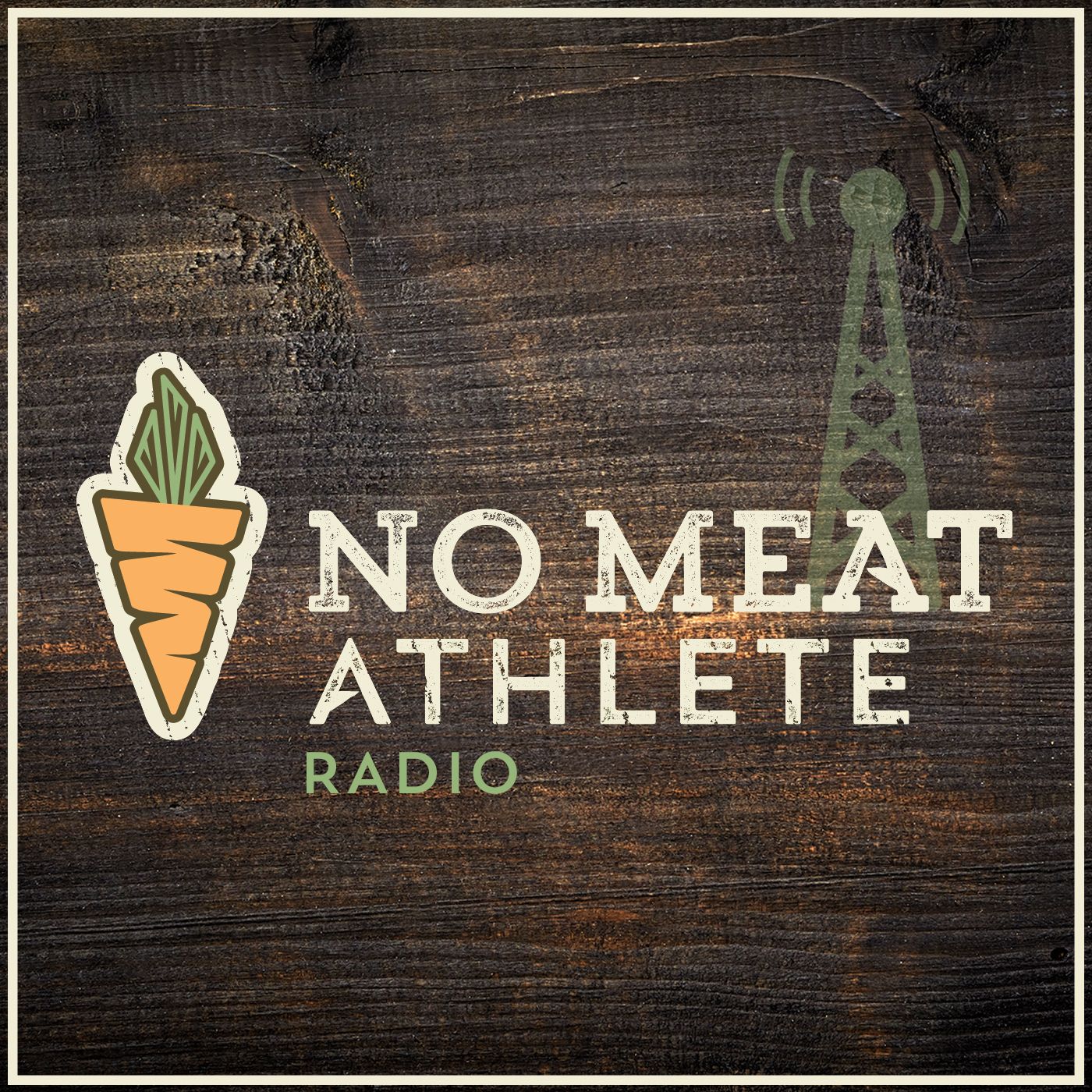
No Meat Athlete Radio
Matt Frazier
The Outlier Health Podcast
Matt Frazier, Matt Tullman, Isabelle Caputo, and Doug Hay
Plant-Powered People Podcast
Toni Okamoto and Michelle Cehn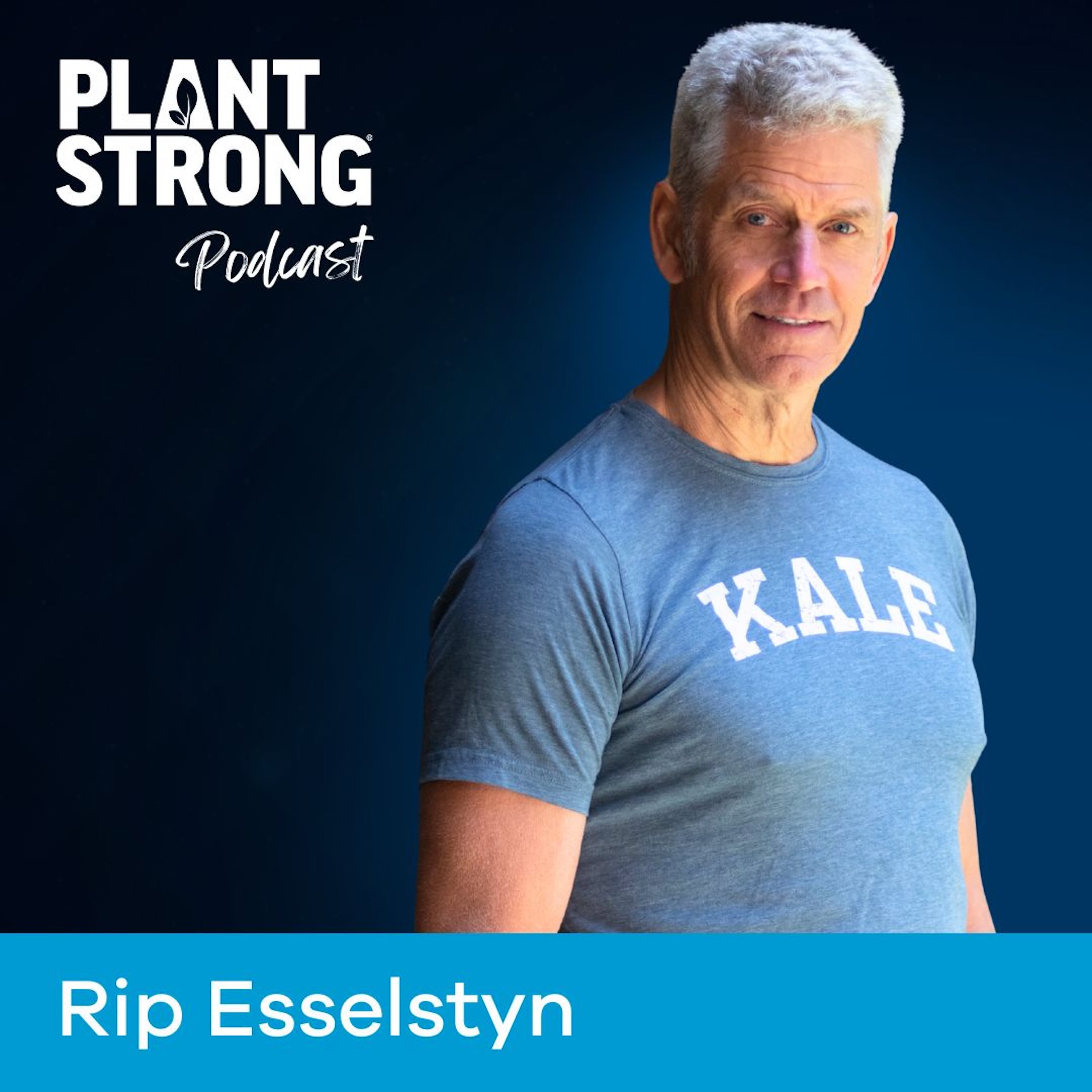
PLANTSTRONG Podcast
Rip Esselstyn
The World Vegan Travel Podcast
Brighde Reed
Vegan Kids Nutrition
Karla Moreno-Bryce, MDA, RD, LD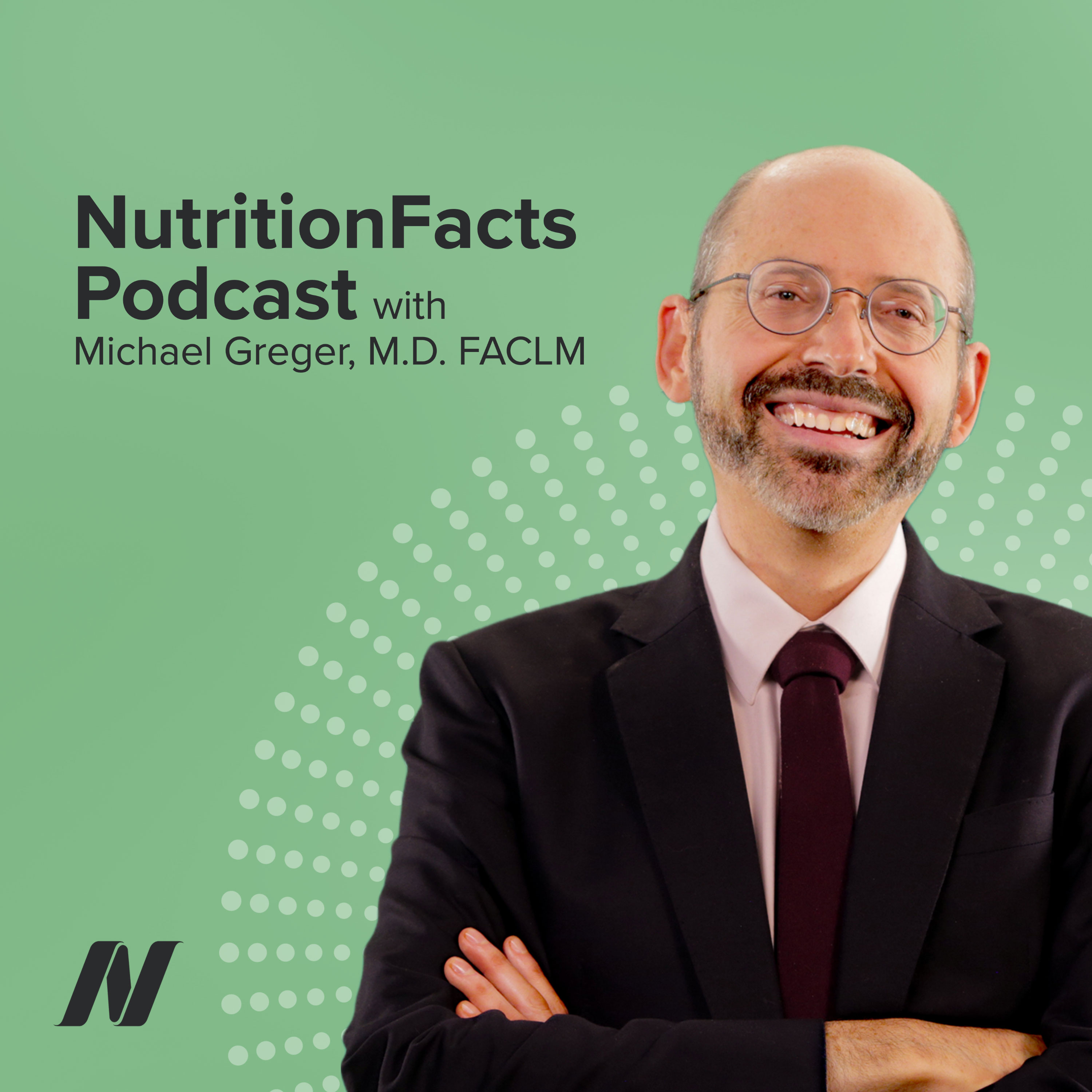
Nutrition Facts with Dr. Greger
Michael Greger, M.D. FACLM
The Plant-Based Morning Show
Matt Frazier & Doug Hay, presented by ComplementThe Plant Based News Podcast
Plant Based News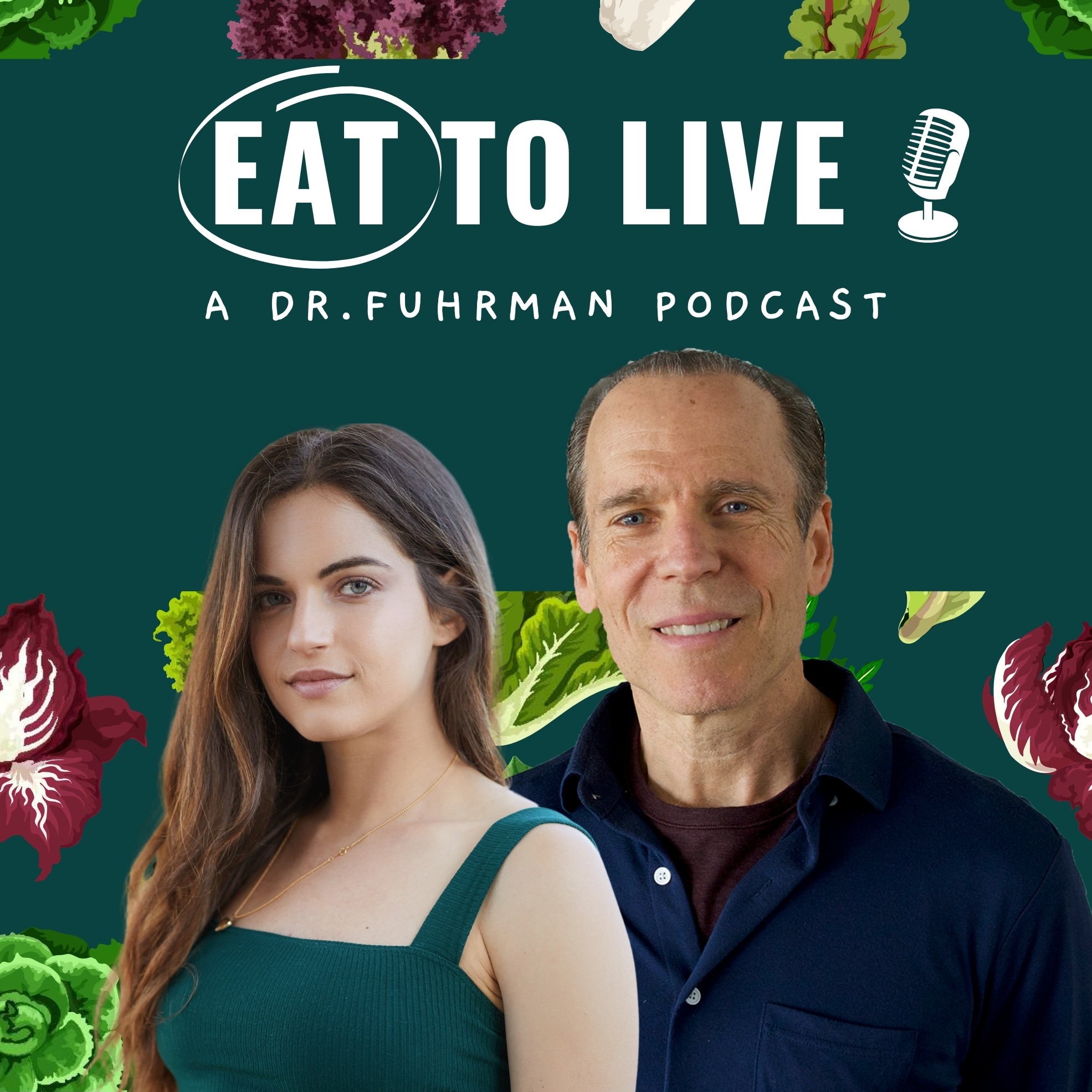
Eat to Live
Jenna Fuhrman, Dr. Fuhrman